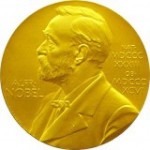
 Swiper, no swiping! The real Dora the Explorer–14-year-old Caitlin Sanchez of Fairview, NJ–feels cheated by Nickelodeon and its owner, the giant vampire media squid Viacom. While she provided the voice of Dora, she was forced to travel around the country promoting the show on a $40 per diem. And apparently she was pressured into signing the convoluted contract without a lawyer present. Well, Dora’s got a lawyer now:
Swiper, no swiping! The real Dora the Explorer–14-year-old Caitlin Sanchez of Fairview, NJ–feels cheated by Nickelodeon and its owner, the giant vampire media squid Viacom. While she provided the voice of Dora, she was forced to travel around the country promoting the show on a $40 per diem. And apparently she was pressured into signing the convoluted contract without a lawyer present. Well, Dora’s got a lawyer now:
“I’ve never seen as convoluted and inscrutable contact as I’ve seen here,” Caitlin’s lawyer, John Balestriere, told the Daily News on Wednesday night.
Balestriere said Caitlin was cheated out of “millions, perhaps tens of millions.”
In that classic NY Daily News style, a huge piece of information is missing here: exactly what Caitlin does earn per episode. Apparently she was promised over $5000 per show, and a quick back-of-napkin calculation ($5000 x 8000 bajillion individual shows that seem to run on every goddamn TV my child is around) reveals that she should have earned 40 million bajillion dollars.
It’s tempting, of course, to hate on young Ms. Sanchez because I have a visceral dislike for Dora. But that’s the writers’ fault, and parents’ fault for supporting such asinine programming–the cartoon equivalent of the crappy maze you get with crayons and a kids menu at Bennigans. Don’t judge the voice talent for all of those shortcomings; the meat-world should Dora get her due.
The plight of the voice actor is also dear to my heart since I’ve recently learned that my friend and colleague Lisa Takeuchi Cullen was the voice of April O’Neil, the perpetually endangered ingenue from the Teenage Mutant Ninja Turtles arcade game. That was her voice, which she recorded in Japan as child, calling for help in every arcade in America. Her father, not incidentally, provided the bombastic “body blow, body blow” voice from Nintendo’s legendary Punch Out boxing game. Being a professional, her father presumedly was paid the standard rate. Lisa, from what I gleaned, made next to nothing.
So here’s hoping that when this is all said and done, the judge looks to the jury and says:
Do you find for the plaintiff?
*blink, blink
*blink, blink
*blink, blink
Bueno!


